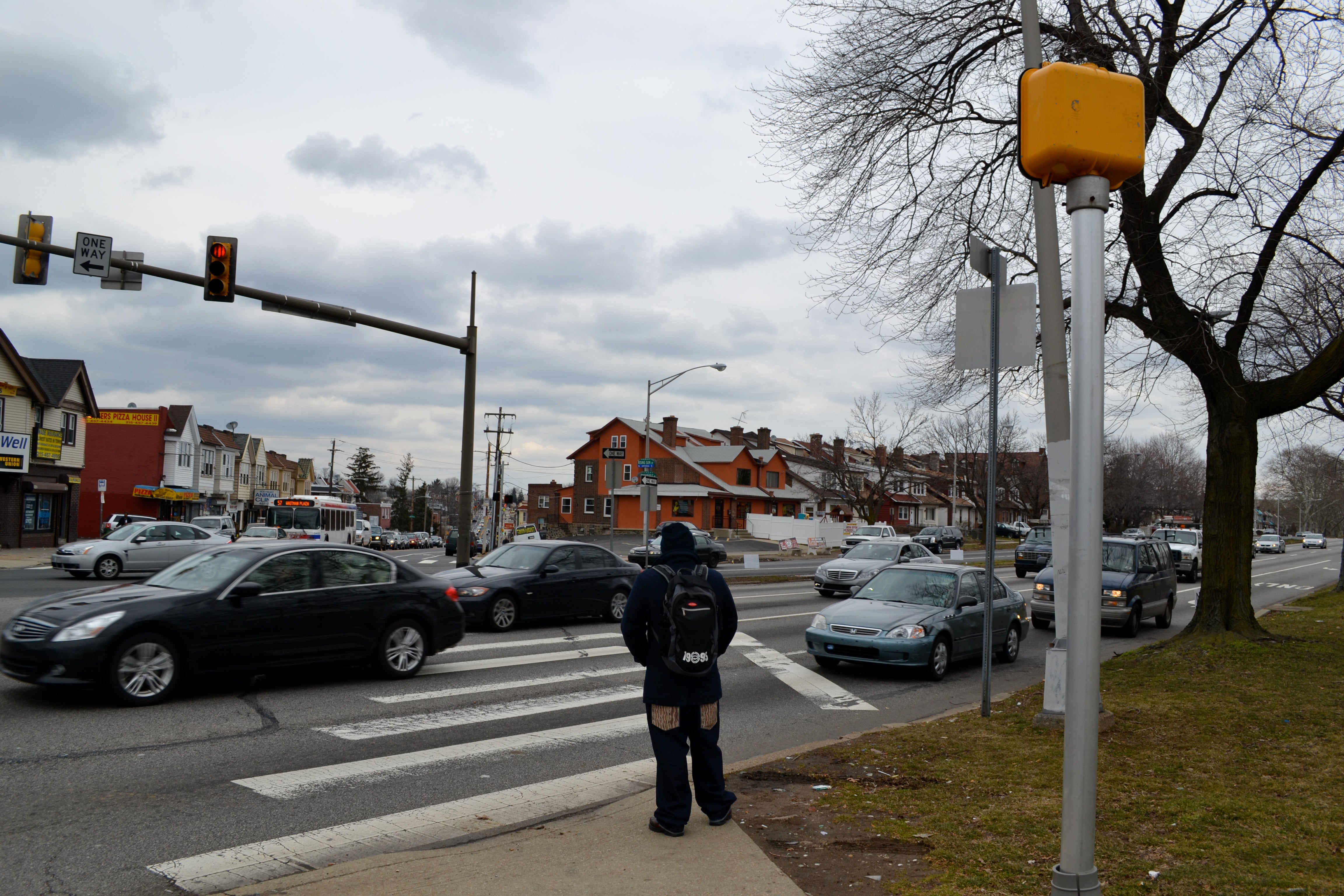Rep. Taylor, AAA, and others rally for speed enforcement via radar and cameras on Roosevelt Boulevard

Tuesday morning’s press conference in a dollar store parking lot on Roosevelt Boulevard attracted a small crowd of curious onlookers.
The event, called to rally support for a new bill to authorize the use of automatic speed limit enforcement via radar-triggered cameras, drew a handful of TV crews, which in turn attracted the shoppers, gawking at the unusual sight.
Just a block away, there is a tragically far more familiar sight: A makeshift memorial of teddy bears and crosses commemorating yet another deadly crash on the Boulevard.
Organizers said they called the rally to make those roadside remembrances more rare by getting Harrisburg to approve a pilot program for camera speed limit enforcement along Roosevelt Boulevard.
The bill, introduced by State Rep. John Taylor, calls for a five-year test run to issue tickets to speeders clocked by radar guns and caught on camera going at least 11 miles over the limit on Roosevelt Boulevard.
Taylor was joined by the Bicycle Coalition of Greater Philadelphia, which organized the event, as well as Councilman Al Taubenberger and representatives from AAA Mid-Atlantic, the auto club best known for providing roadside assistance. Explaining AAA’s support for Taylor’s bill, H.B. 2233, Manager of Public and Government Affairs Jana Tidwell noted that recent AAA member polls showed that 52 percent of drivers in the region supported the use of speed cameras.
Like red light cameras, speed enforcement cameras are disliked by some motorists, who contend that they are really meant as underhanded revenue generators—high-tech versions of moneymaking speed traps, not safety measures. When asked what he would say to those who consider the speed cameras nothing more than a hidden tax on motorists, Taylor was dismissive.
“This is completely a voluntary situation,” said Taylor. “If you go within the speed limit, you won’t be taxed.”
Crossing the twelve-lane highway is challenging enough when cars obey traffic laws: at the intersection of Roosevelt and Langdon Street, the “WALK” signal last just 15 seconds, and the light itself 35. While waiting for a bus, PlanPhilly saw a handful of pedestrians take almost the entirety of those 35 seconds to cross the wide road—none, including this relatively fast-walking reporter, managed to cross in just the time allotted by the signal.
Roosevelt Boulevard is arguably the city’s most dangerous roadway. Since 2011, crashes along the Boulevard have killed at least 63 people, and injured over 4,700 more. One third of those killed were pedestrians.
Among those killed were Samara Banks and her three sons, struck by a racing car while attempting to cross the Boulevard one night in 2013. Banks and her children were heading home after visiting her aunt, Latanya Byrd, who attended Tuesday’s rally to support the bill.
Three years after that horrific night, “It hurts, it really hurts,” said Byrd. “It’s still unbelievable.”
Taylor, who chairs the House Transportation Committee, said he expects to move the bill quickly once the legislature returns to Harrisburg from summer recess in September. Similar bills have been introduced in previous sessions by Democrats John Sabatina and Mike Stack, who now serves as Wolf’s Lt. Governor. Those bills never went far in the General Assembly, but with the backing of Taylor, Philadelphia’s lone Republican representative in Harrisburg, the proposal now enjoys bipartisan support.
To calm the nerves of civil libertarians, the bill provides that all images be destroyed within a year of a ticket’s final disposition, meaning payment or dismissal. While the bill currently calls for $150 fine with no points, Taylor suggested that the fine amount would be reduced in future amendments.
WHYY is your source for fact-based, in-depth journalism and information. As a nonprofit organization, we rely on financial support from readers like you. Please give today.






